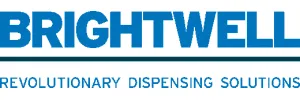News & Insights
Read the latest news from us and our clients across the globe

Posted on 16 July 2012 by adtrak.admin
Ask the Expert
Q: My contract cleaning company has been invited to quote for cleaning a local school – what specific issues do I need to consider when working in an educational environment?
A: Educational establishments have specific needs when it comes to cleaning regimes. Aside from the usual daily lessons, breakfast clubs, after-school activities and evening classes all mean that these sites are being used in more diverse ways more frequently, and out of ‘normal’ hours, which has a major impact on the cleaning regimes that are required.
With such a diverse range of needs, flooring can vary greatly from place to place within any school or college. Carpeting may be favoured for offices and staff rooms, while corridors, classrooms, canteens, dining halls, washrooms and other communal areas will probably need harder wearing vinyl or synthetic materials. Gyms, sports halls and changing rooms often feature specialist safety flooring, while wooden floors in assembly halls will also need specific maintenance.
As well as a wide variety of flooring materials, many different types of dirt are brought into educational settings every single day. Students, staff and visitors bring in soil, sand and grit, while seasonal changes also have a big effect. In autumn fallen leaves can blow in to buildings or stick to shoes, and in winter substances to treat pavements can adversely affect a floor’s finish. Add to this the dropping of litter and the spilling of food or drink and it becomes obvious that your cleaning regime must be regular and robust!
Safe and sound
The safety of pupils, students, staff and visitors is of paramount importance, so minimising the risk of slips, trips and falls is crucial, but the correct cleaning procedures will help to reduce the risk of accidents happening.
With schools and colleges providing the venue and the facilities for pre and post school activities, it is now commonplace for cleaning to be carried out when the building is occupied. This means that cleaning equipment needs to be adaptable and flexible, easily transported from one location to another with the minimum fuss. Cordless battery-powered cleaning machines with no trailing leads will be less likely to cause trips or falls, and they must have the ability to leave floors clean, dry and ready to walk on in a matter of minutes to guard against slips for anyone still using the building, not least the cleaning operatives themselves.
Quietness is also an issue that needs to be considered, especially if machines are being used for daytime cleaning. Noise can be an unwelcome and distracting intrusion in many different settings, but it is especially disruptive when lessons or exams are in progress.
A healthy educational environment
Germs thrive in places where lots of people mix in close proximity, so schools and colleges are an ideal breeding ground for germs. Educational establishments have a duty of care to try and prevent the spread of infections, and maintaining a clean environment will help.
In its guidance on infection control in schools and other childcare settings the Health Protection Agency states that: ‘Cleaning of the environment, including toys and equipment, should be frequent, thorough and follow national guidance. For example, use colour-coded equipment, COSSH (Control of Substances Hazardous to Health), and correct decontamination of cleaning equipment. Monitor cleaning contracts and ensure cleaners are appropriately trained with access to personal protection equipment.’
Cleaning equipment is developing constantly and many models now incorporate special features that can help in the fight against infections. For example, vacuums incorporating HEPA filters will help to minimise airborne spores and organisms that could spread infections, and are also useful in protecting asthmatics from the effects of dust.
This article appeared in Tomorrow’s Cleaning – July 2012
Experts in Public Relations Services & Communications Management
Our ServicesGenuine industry specialists in cleaning and hygiene, environmental and recycling, and facilities management
Our Sectors












